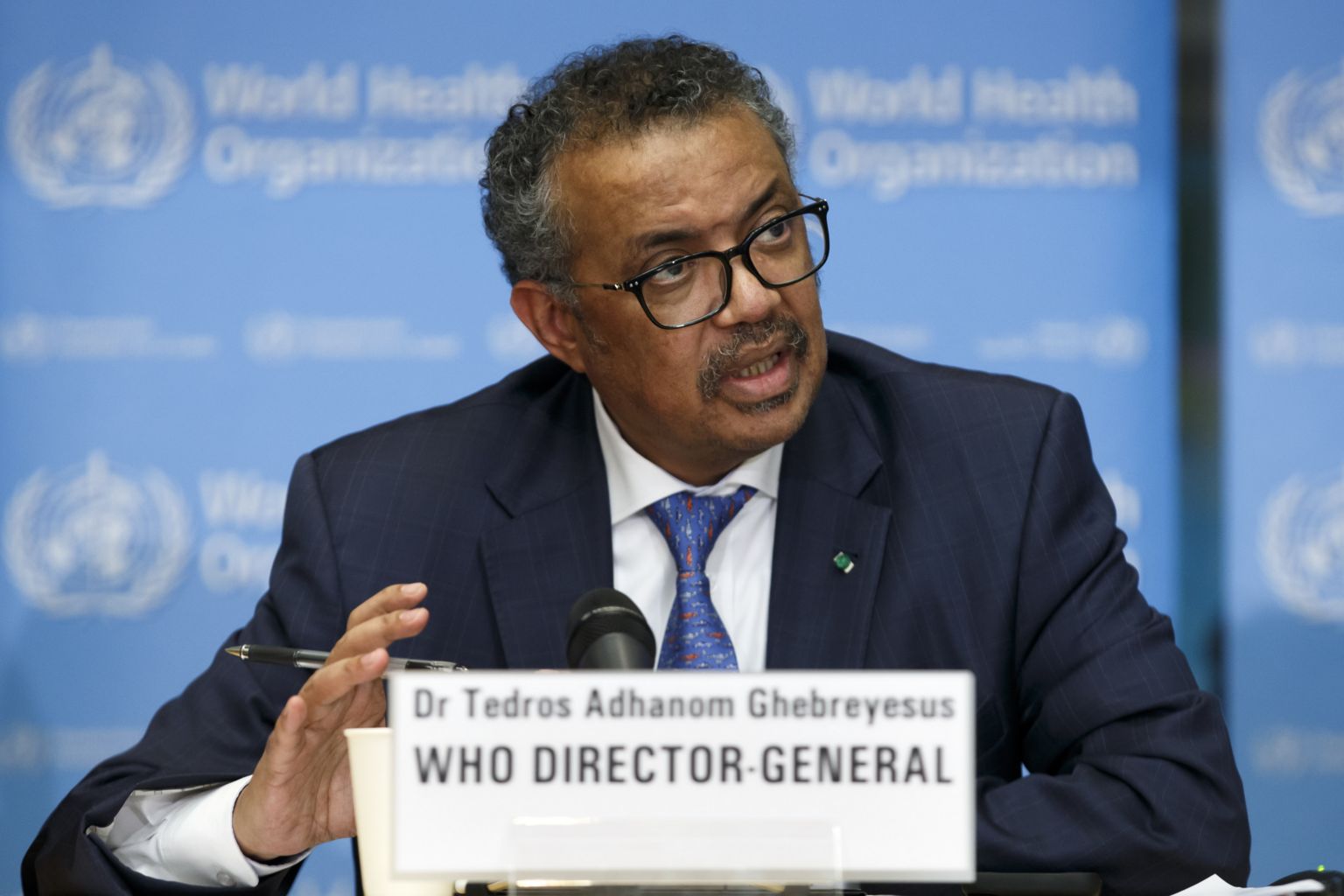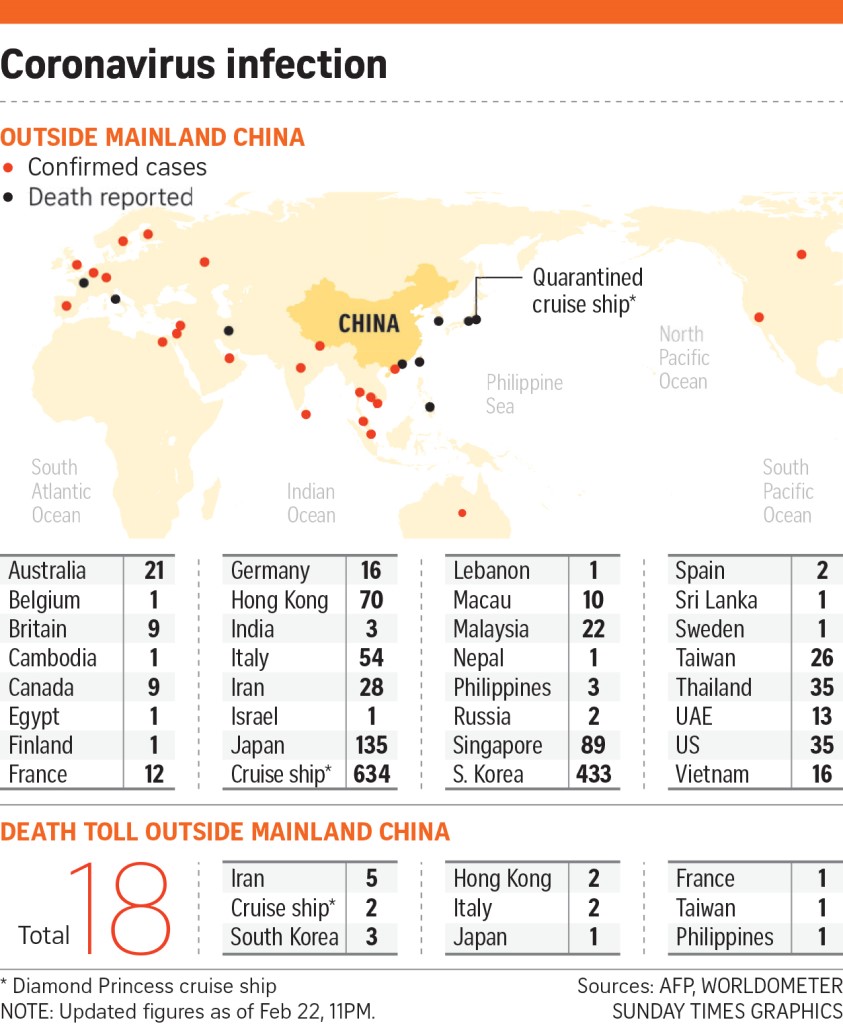Growing fears over global spread of virus
WHO urges nations to act quickly as window of opportunity to curb outbreak shrinks
Sign up now: Get ST's newsletters delivered to your inbox

World Health Organisation director-general Tedros Adhanom Ghebreyesus speaks during a press conference at WHO headquarters in Geneva on Feb 17, 2020.
PHOTO: REUTERS
Follow topic:
The World Health Organisation (WHO) has urged countries around the world to act quickly, as the window of opportunity to curb the wide spread of the disease known as Covid-19 is shrinking.
Urging nations to invest in preparedness, the United Nations agency's director-general Tedros Adhanom Ghebreyesus said: "If we do well within the narrowing window of opportunity, we can avert any serious crisis. If we squander the opportunity, then there will be a serious problem on our hands."
The warning follows a spike in the number of infected cases outside of China, with South Korea yesterday reporting that its new infections had more than doubled in a single day to 433, while Iran registered another 10 new cases.
Japan's cases are also climbing, with 26 new cases reported yesterday to bring the total to 135.
Meanwhile, mainland China held out hope that it was getting a grip on infections after reporting 397 new confirmed cases on Friday, down from 889 a day earlier. Just 31 new cases were reported outside the epicentre, Hubei province. There were 109 deaths on the same day.
So far, the number of infections worldwide has climbed to more than 77,000 in some 30 countries and territories and killed more than 2,300 people, mostly in China.
At a briefing in Geneva yesterday, Dr Ghebreyesus described the trend in cases having no clear links to China as "very worrisome", citing the growing number of cases in Iran in the past few days. Five people out of its 28 cases have died.
"Our biggest concern continues to be the potential for Covid-19 to spread in countries with weaker health systems," said Dr Ghebreyesus, noting that the agency is helping to prepare African countries for "the potential arrival of the virus".
It has identified 13 priority countries in the continent that have direct links to China and has appealed for US$675 million (S$944 million) in funds to support the most vulnerable.
WHO has been advising countries on screening, testing, contact tracing and treatment.
WHO's warning comes as a study in Britain predicted that as many as two-thirds of infections exported from China may have gone undetected globally, which had the potential for a massive outbreak.
Using data from air travel, scientists at Imperial College London found some countries to have identified far fewer cases than expected based on the number of passengers arriving from Wuhan.

Lebanon confirmed its first case on Friday, a 45-year-old Lebanese woman who had travelled from Qom in Iran. New cases were also reported in the United Arab Emirates, which yesterday confirmed that an Iranian tourist and his wife had been sickened by the coronavirus, raising the total number to 13.
Iran's outbreak is worrying public health officials there and in the WHO. The authorities have not confirmed its origin, but one health official has suggested that it could have been imported by Chinese workers.
Neighbouring countries have started to take action. Turkey has said all travellers from Iran will have to undergo medical checks, while Bahrain has issued an advisory against travel there.
Northern Italy is also on alert after two deaths were caused by the coronavirus - a 75-year-old woman yesterday in Lombardy and a 78-year-old man the day before in Veneto. The region has 51 cases now.
Meanwhile, a WHO-led mission in China for the past week travelled to Wuhan yesterday. State media Global Times said the expert team will collect wild animal samples to trace the origin of the new coronavirus and check quarantine conditions in the makeshift hospitals.

